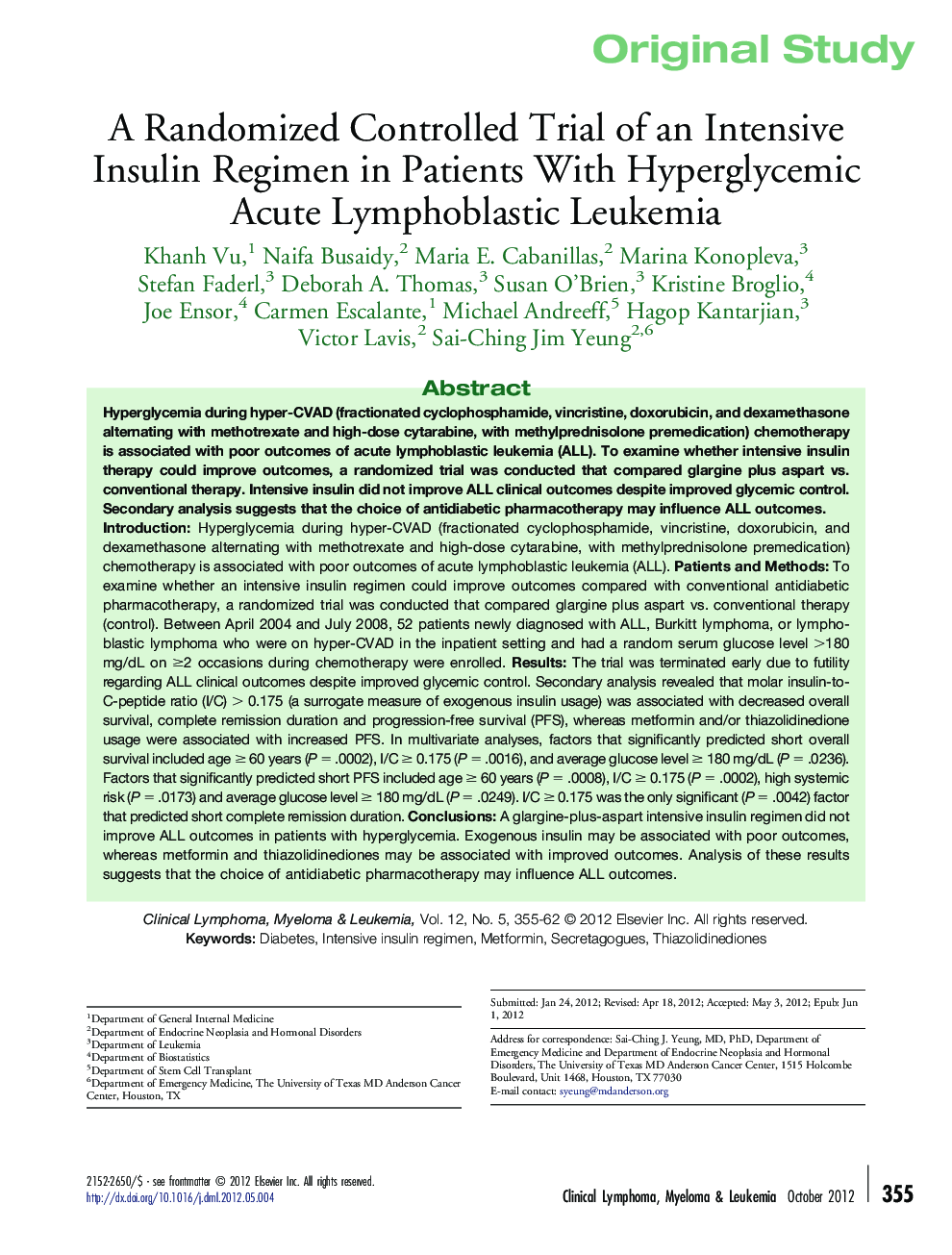| Article ID | Journal | Published Year | Pages | File Type |
|---|---|---|---|---|
| 2755257 | Clinical Lymphoma Myeloma and Leukemia | 2012 | 8 Pages |
IntroductionHyperglycemia during hyper-CVAD (fractionated cyclophosphamide, vincristine, doxorubicin, and dexamethasone alternating with methotrexate and high-dose cytarabine, with methylprednisolone premedication) chemotherapy is associated with poor outcomes of acute lymphoblastic leukemia (ALL).Patients and MethodsTo examine whether an intensive insulin regimen could improve outcomes compared with conventional antidiabetic pharmacotherapy, a randomized trial was conducted that compared glargine plus aspart vs. conventional therapy (control). Between April 2004 and July 2008, 52 patients newly diagnosed with ALL, Burkitt lymphoma, or lymphoblastic lymphoma who were on hyper-CVAD in the inpatient setting and had a random serum glucose level >180 mg/dL on ≥2 occasions during chemotherapy were enrolled.ResultsThe trial was terminated early due to futility regarding ALL clinical outcomes despite improved glycemic control. Secondary analysis revealed that molar insulin-to-C-peptide ratio (I/C) > 0.175 (a surrogate measure of exogenous insulin usage) was associated with decreased overall survival, complete remission duration and progression-free survival (PFS), whereas metformin and/or thiazolidinedione usage were associated with increased PFS. In multivariate analyses, factors that significantly predicted short overall survival included age ≥ 60 years (P = .0002), I/C ≥ 0.175 (P = .0016), and average glucose level ≥ 180 mg/dL (P = .0236). Factors that significantly predicted short PFS included age ≥ 60 years (P = .0008), I/C ≥ 0.175 (P = .0002), high systemic risk (P = .0173) and average glucose level ≥ 180 mg/dL (P = .0249). I/C ≥ 0.175 was the only significant (P = .0042) factor that predicted short complete remission duration.ConclusionsA glargine-plus-aspart intensive insulin regimen did not improve ALL outcomes in patients with hyperglycemia. Exogenous insulin may be associated with poor outcomes, whereas metformin and thiazolidinediones may be associated with improved outcomes. Analysis of these results suggests that the choice of antidiabetic pharmacotherapy may influence ALL outcomes.
